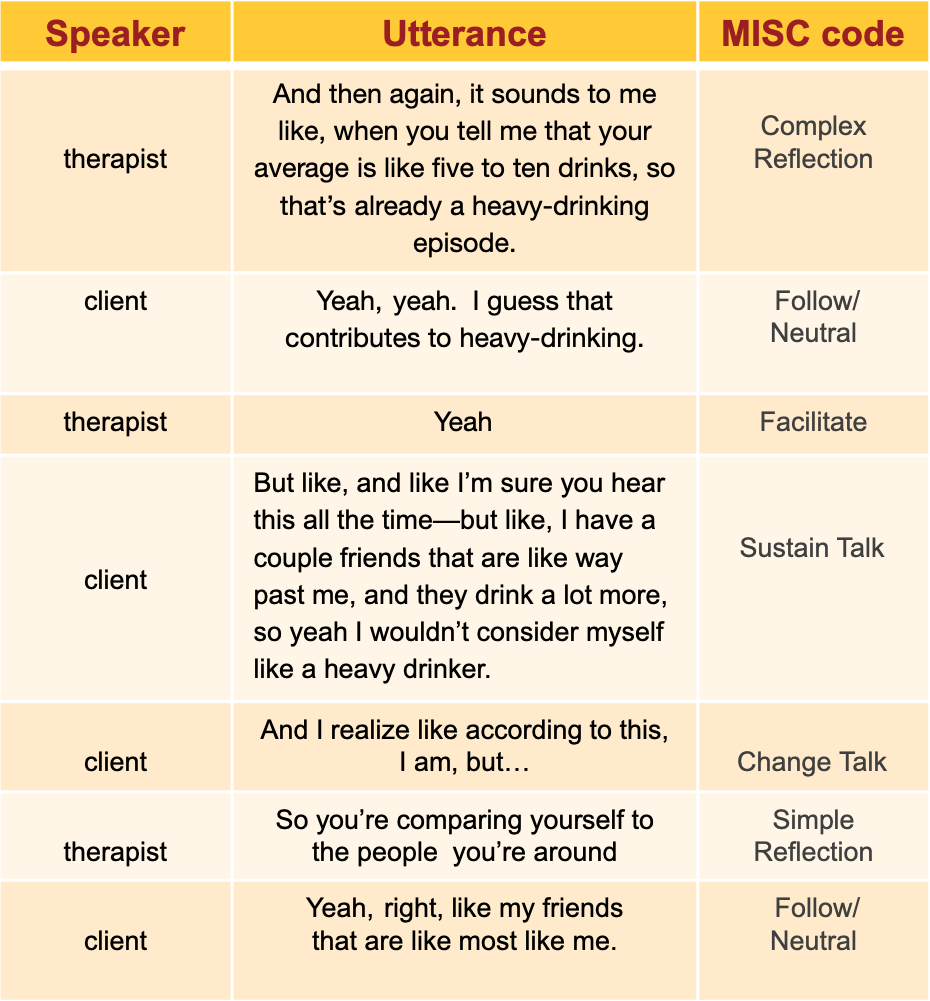Video-mediated support group interaction
Motivational Interviewing (MI) is a psychotherapy treatment style for resolving ambivalence toward a problem such as alcohol or substance abuse. MI approaches focus on eliciting clients’ own intrinsic reasons for changing their behavior toward the desired outcome. Common MI annotations leverage a set of behavioral coding system (MISC) that indicate the function of each utterance, e.g. “giving information,” “open-ended question,” “simple/complex reflections” etc. for therapists; “change talk” (willingness to change), “sustain talk” (resistance to change), or “follow neutral” (other/neutral intents) for clients. Our NIH-supported project has been studying several aspects of MI sessions between therapists and clients:
Automatic identification of intent (i.e. classification of the MISC codes, focusing on the client talk) using both transcripts and audio
Analysis of signals in the transcripts and speech that are indicative of empathy, MI spirit, and behavior outcomes
Studying the therapist/client sequential conversation codes as well as the differences between self-motivated vs. agreement change talks and how they relate to both behavioral outcomes and perceived empathy/MI spirit.

Team
Current team
- Prof. Stefan Scherer (PI)
- Prof. Brian Borsari (USCF/VA)
- Prof. Josh Woolley (USCF/VA)
- Trang Tran
- Leili Tavabi
Past team members
- Kalin Stefanov
- Madeleine Tompson
- Yuchen Zhang
Support
This project is funded by the NIH NIAAA.
Publications
- L. Tavabi, T. Tran, K. Stefanov, B. Borsari, J. Woolley, S. Scherer, M. Soleymani. Analysis of Behavior Classification in Motivational Interviewing. The Seventh Workshop on Computational Linguistics and Clinical Psychology: Improving Access, 2021.
- L. Tavabi, L. Stefanov, B. Borsari, J.D. Woolley, S. Scherer, M. Soleymani. Multimodal Automatic Coding of Client Behavior in Motivational Interviewing, ACM Int’l Conference on Multimodal Interaction (ICMI), 2020.
